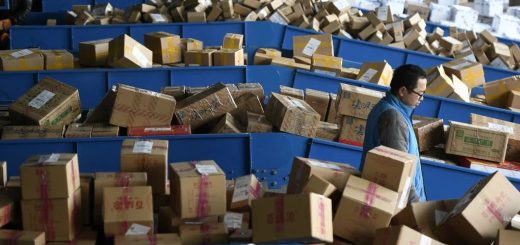Navigating EU Import Regulations: Compliant China Consolidation for New Standards
I. Introduction: Adapting to Evolving EU Import Standards
As of 2025, the European Union (EU) has implemented significant reforms to its import regulations, particularly concerning goods imported from China. These changes aim to enhance product safety, environmental sustainability, and fair competition within the EU market. For businesses involved in consolidating shipments from China, understanding and complying with these new standards is crucial to ensure smooth operations and avoid potential penalties.
II. Key Reforms in EU Import Regulations
1. Carbon Border Adjustment Mechanism (CBAM)
The EU has introduced the CBAM to address carbon leakage and ensure that imported goods meet EU environmental standards. Effective from 2026, importers must purchase CBAM certificates corresponding to the carbon emissions embedded in their products. This mechanism applies to various sectors, including steel, cement, and fertilizers. Importers will need to report the quantity of goods and their embedded emissions, aligning with the EU Emissions Trading System. Failure to comply may result in financial penalties and restricted market access. en.wikipedia.org+1mayerbrown.com+1
2. EU Deforestation Regulation (EUDR)
Starting December 30, 2025, the EUDR mandates that companies placing certain products—such as wood, rubber, cocoa, and cattle—on the EU market must provide geolocation data proving their origin is deforestation-free. This regulation aims to curb global deforestation linked to supply chains and applies to both EU and non-EU operators. Non-compliance can lead to market exclusion and reputational damage. cms-lawnow.com
3. Modernized Union Customs Code (UCC)
The EU has adopted a new Union Customs Code to modernize and digitalize customs procedures. This reform strengthens the EU Customs Union’s capability to supervise and control the flow of goods entering and leaving the Customs Union, starting with e-commerce goods. A significant innovation is the establishment of the European Customs Authority, which will develop and run the new EU Customs Data Hub, transforming data provision, data sharing, and risk management across Member States. taxation-customs.ec.europa.eu
III. Implications for Consolidation Services
Consolidation services play a pivotal role in streamlining the import process from China to the EU. However, with the introduction of new regulations, these services must adapt to ensure compliance:
- Documentation and Reporting: Consolidators must ensure accurate and timely submission of required documentation, including CBAM declarations and geolocation data for relevant products.
- Customs Clearance: With the modernization of the UCC, consolidators need to stay updated on digital customs procedures and ensure all shipments are processed efficiently to avoid delays.
- Product Compliance: Consolidators should verify that all products meet EU safety and environmental standards before shipment to prevent non-compliant goods from entering the market.
IV. Strategies for Ensuring Compliance
To navigate the evolving regulatory landscape, businesses can adopt the following strategies:
- Engage with Experienced Consolidation Partners: Partnering with consolidation services that have a deep understanding of EU regulations can help ensure compliance and streamline the import process.
- Implement Robust Documentation Practices: Maintaining accurate records and ensuring timely submission of required documentation can prevent customs delays and potential penalties.
- Stay Informed on Regulatory Changes: Regularly reviewing updates from EU regulatory bodies can help businesses stay ahead of changes and adjust their operations accordingly.
V. Conclusion
The EU’s new import regulations present both challenges and opportunities for businesses importing goods from China. By understanding these regulations and collaborating with experienced consolidation partners, businesses can ensure compliance, reduce risks, and maintain a competitive edge in the EU market.

